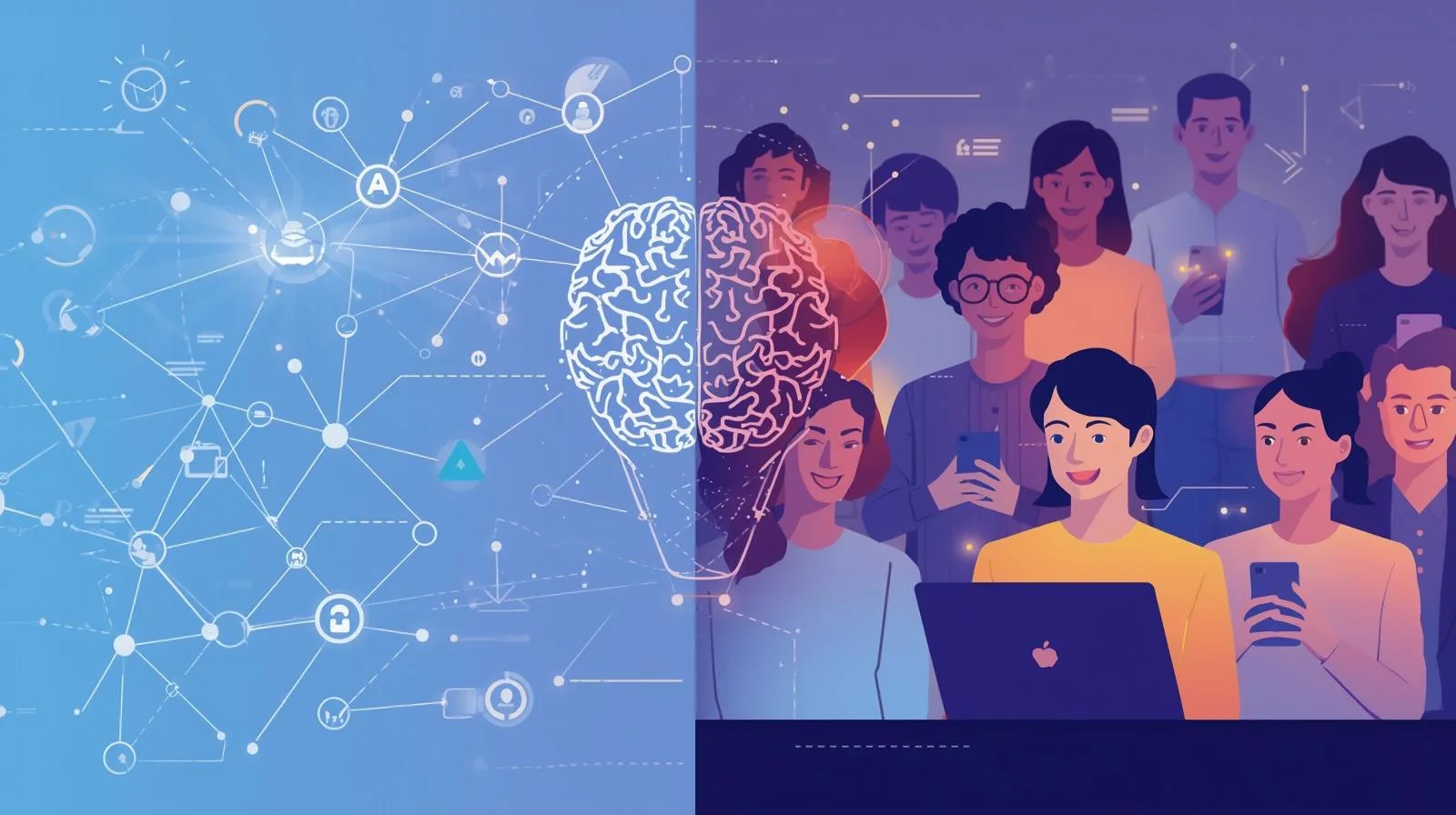By: Vishnu Raveendran | Published: October 10, 2025
1. Introduction: The AI Revolution in Marketing
In 2025, Artificial Intelligence (AI) is not just a buzzword — it’s the driving force behind every successful digital marketing strategy. According to a report by IBM, AI technologies now power over 60% of global marketing automation systems.
AI allows brands to analyze massive amounts of data, predict customer behavior, and deliver personalized experiences that feel almost human. Learn more about the latest AI developments from Google AI Blog.
Every time you get a personalized product suggestion on Amazon or a movie recommendation on Netflix — that’s AI in action. Modern marketing has entered the age of personalization, where understanding the customer is more important than selling to them.
2. The Role of AI in Modern Digital Marketing
AI is transforming how brands reach, understand, and engage with audiences. Here’s how:
- Predictive Analytics: Forecasts customer actions and optimizes campaigns.
- Marketing Automation: Automates repetitive tasks like email campaigns, lead scoring, and ad bidding.
- Content Optimization: Identifies the best-performing content formats and posting times.
- Customer Engagement: Chatbots and recommendation engines deliver personalized communication in real-time.
For example, Google Ads uses AI to optimize ad targeting, while Meta’s Advantage+ campaigns automate creative testing and delivery — saving time and increasing ROI.
3. Personalization Through AI: Marketing That Feels Human

Today’s consumers expect more than generic ads — they want brands to “get them.” This is where AI-powered personalization shines.
- Netflix: Suggests shows based on your viewing history and even personalizes thumbnails to attract clicks.
- Amazon: Recommends products using AI models trained on browsing and purchase patterns.
- Spotify: Curates playlists like Discover Weekly using machine learning algorithms.
This level of personalization leads to stronger engagement, higher conversions, and deeper brand loyalty. In fact, Forbes reports that 80% of consumers are more likely to buy from a brand that offers personalized experiences.
4. AI-Powered Marketing Tools You Should Know
AI tools are changing how marketers create, analyze, and communicate. Here are some of the most effective ones in 2025:
- ChatGPT, Jasper, Copy.ai: Generate SEO content, ad copy, and product descriptions instantly. Explore ChatGPT for advanced text generation.
- HubSpot & Salesforce Einstein: Automate workflows and provide predictive lead scoring. Learn more on HubSpot’s AI tools.
- Google Analytics 4 (GA4): Uses AI insights to predict customer actions and improve campaign performance. Learn more on Google Marketing Platform.
- Canva Magic Write & Adobe Firefly: AI-powered creative tools for visual storytelling.
5. Challenges and Ethical Concerns of AI Marketing
While AI brings innovation, it also raises ethical and operational challenges that marketers can’t ignore:
- Data Privacy: Regulations like GDPR and India’s DPDPA require transparency and user consent.
- Algorithmic Bias: AI systems may unintentionally favor certain groups due to biased training data.
- Human Touch: Over-automation risks making marketing feel robotic — emotional connection still requires human creativity.
According to a Harvard Business Review study, brands that balance AI efficiency with human empathy outperform competitors by up to 20% in customer satisfaction.
6. The Future of AI in Digital Marketing (2025 and Beyond)
AI is evolving faster than ever — and its impact on marketing will only grow. Key trends include:
- AI-Generated Influencers: Virtual personalities like Lil Miquela are already promoting brands online.
- Emotion AI: Detects user emotions through voice, text, or facial expressions for personalized messaging.
- AR and VR Integration: AI-powered virtual experiences let customers “try before they buy.”
- Voice & Visual Search: Optimizing content for voice assistants like Google Assistant and image-based searches will be crucial.
The future belongs to AI + Human collaboration, where technology enhances creativity instead of replacing it.
7. Conclusion: The Human Touch Behind Smart Machines
Artificial Intelligence is redefining digital marketing from the ground up. It enables brands to understand audiences deeply, predict behavior accurately, and communicate personally — at scale.
But the secret to long-term success isn’t just smarter machines — it’s smarter marketers. The most successful brands will combine AI’s precision with human empathy and storytelling.
“In the age of AI, understanding data helps you sell — but understanding people helps you grow.”
Frequently Asked Questions
Q1: How is AI used in digital marketing?
A: AI is used for personalization, predictive analytics, content creation, and automation to improve customer engagement and ROI. Learn more from McKinsey’s AI in Marketing Report.
Q2: What are the best AI tools for marketing in 2025?
A: Popular tools include ChatGPT, Jasper, HubSpot, Salesforce Einstein, and Google Analytics 4.
